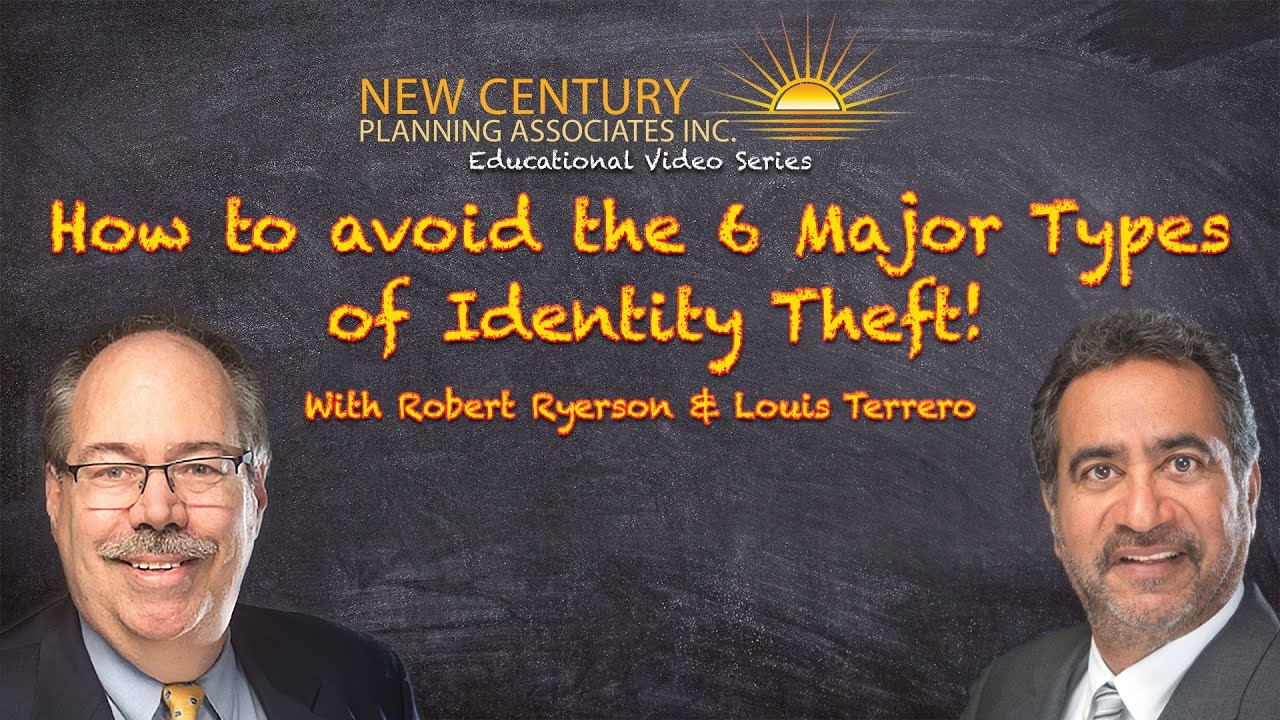Understanding and Combating the Six Major Types of Identity Theft
Identity theft, a multifaceted problem often misconstrued as solely a credit-related issue, is a significant concern in the digital age. Robert Ryerson and Lou Terrero, Certified Identity Theft Risk Management Specialists (CITRMS) from New Century Planning Associates, offer valuable insights into the complexity of identity theft and the crucial strategies for responding to it.
- Beyond Credit and Bank Fraud: Contrary to popular belief, identity theft extends beyond credit and bank fraud. These include more severe cases than just a compromised credit card.
- Driver’s License and Social Security Number Theft: A notable example is the influx of fake driver’s licenses, particularly from China, and the misuse of Social Security numbers for fraudulent activities like filing a false tax return.
- Medical and Child Identity Theft: Medical identity theft poses severe risks, potentially leading to life-threatening situations due to incorrect medical records. Child identity theft, as Terrero notes, can remain undetected for years, causing significant problems when the child becomes an adult.
- Criminal Identity Theft: One of the most serious forms, criminal identity theft can lead to wrongful accusations and legal troubles for individuals whose identities are misused for criminal activities.
- The Importance of Restoration: Both experts emphasize restoration over prevention. Unfortunately, it’s impossible to prevent breaches, given that so much of our personal information is already in the cloud. They highlight the significance of restoring one’s identity quickly and efficiently after a breach.
- Comprehensive Protection Plans: They advocate for comprehensive plans covering all six types of identity theft, noting that these plans are affordable and focus on restoration. Ryerson points out, “A licensed professional investigator…will restore you to pre-breach status,” emphasizing the efficiency and relief provided by these services.
The discussion by Ryerson and Terrero underscores the intricate nature of identity theft and the necessity of comprehensive restoration strategies. As part of overall financial planning, addressing identity theft is crucial for safeguarding personal and financial well-being in the 21st century. Identity theft protection plans offer comprehensive protection at a relatively small cost.
Author
Robert Ryerson
Although Robert M. Ryerson completed all the necessary requirements to earn bachelor of arts degrees in both English and economics at Rutgers University, college policy at the time prohibited the issuance of dual degrees. As a result, he graduated from Rutgers with a single bachelor of arts in economics before finding employment as a stockbroker with Shearson Lehman American Express in New York City 1984. Robert M. Ryerson has since established himself as a respected estate administrator and legacy planner. In addition to his economics degree from Rutgers, Mr. Ryerson holds several professional designations including Retirement Income Certified Professional (RICP)®; Certified In Long Term Care (CLTC)®; Certified Financial Fiduciary (CFF)®, and Certified Identity Theft Risk Magenament Specialist (CITRMS)®. He has shared his knowledge on the subject of identity theft as the author of the book What’s The Deal With Identity Theft?: A Plain-English Look at Our Fastest Growing Crime. He has also covered identity theft issues directly for students as the instructor of the adult education course Understanding Identity Theft: Our Fastest Growing Crime.






